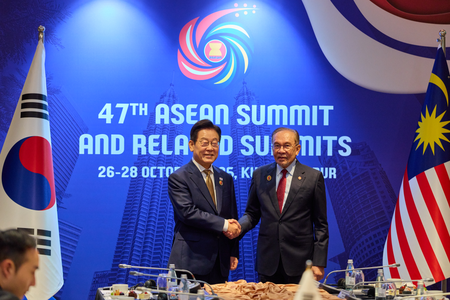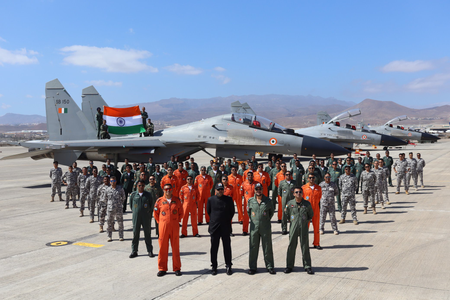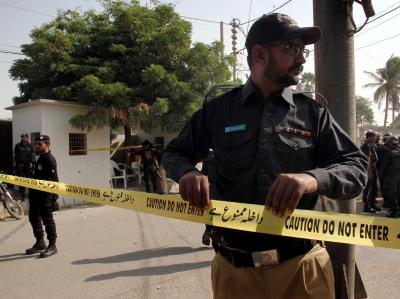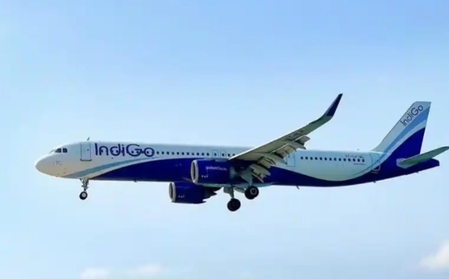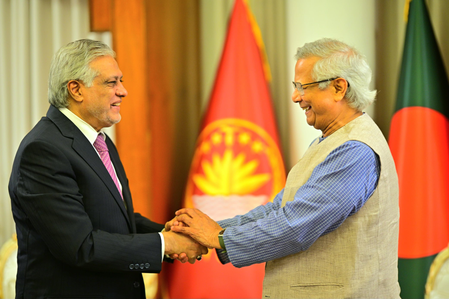
Dhaka, Aug 25 (IANS) Bangladesh’s long-standing demand for an apology from Pakistan for the atrocities committed during the 1971 war of independence was raked up during the visit of Pakistan’s Deputy Prime Minister and Foreign Minister Ishaq Dar.
Dar is the most senior from Pakistan to visit Dhaka since 2012, and hence the demand is seen as significant. The same demand was made during the 2012 visit, but Pakistan did not address it.
Since Sheikh Hasina lost power and fled the country, the regime in Bangladesh has cosied up to Pakistan. Ties between the two countries have grown significantly, and this has caused a security headache for India on its eastern borders.
The question is whether this issue relating to an apology is a thorn in the ties between the two countries. Bangladesh watchers say that this would remain an irritant, with the demand being made repeatedly. However, ties will not sour as events in Bangladesh are today not decided by Muhammad Yunus, but by the Jamaat-e-Islami, which is a puppet of Pakistan.
During the meeting with Dar, the demand was not only made by Yunus, but by the Jamaat and the BNP as well. However, all this is grandstanding and is meant only to appease the public of Bangladesh. There is nothing more to it, the experts say.
Dar, after the meeting, said that Bangladesh should learn its heart and move ahead by leaving the unresolved issue of Pakistan’s accountability for the atrocities committed by Pakistan in 1971. He said that the issue was resolved in 1974. He also said that when General Musharraf had visited Bangladesh, he had addressed this issue in a candid manner.
Dar further referred to the Tripartite Agreement of 1974 signed by Bangladesh, India and Pakistan. He said that in the agreement, Pakistan had acknowledged the involvement of its military in the atrocities.
The reason the apology will not stand in the way of ties is also evident, as during Dar’s visit, an agreement was signed to allow diplomats and officials of both sides to travel without visas. This is a major headache for India, because it is suspected that this rule will be used by terrorists posing as officials to visit Bangladesh.
During a meeting on the sidelines of the D-8 Summit in Cairo, Egypt, in December 2024, Yunus had emphasised the need to resolve outstanding grievances from the 1971 war. This marked a shift away from the earlier demand for an apology.
Apart from the Jamaat, the reason why Pakistan was able to improve ties is with Pakistan has to do with the large number of people in Bangladesh. A section has been pro-Pakistan, and a large number feel that Hasina had clung on to power with the help of the Indian government. Hence, the anti-Hasina anger was also directed at India. Hence, since her ouster, the country was quick to move closer towards Pakistan.
Prior to the signing of the no-visa agreement, Bangladesh had made several concessions to Pakistan in recent times. Bangladesh has waived the requirement for 100 per cent physical inspection of Pakistani consignments. Clearance requirements for Pakistani visa applicants have been eased, and the Pakistan-focused security desk at the Dhaka airport has been abolished.
In today’s scenario, there is also a China factor that is behind the ties. Following the meeting with Dar, the interim government’s Adviser on Foreign Affairs, Touhid Hossein, said that we want Pakistan to express remorse. He was, however, quick to acknowledge that China is supportive of Pakistan-Bangladesh bilateral ties.
China is enthusiastic about this bilateral relationship. Pakistan, too, is enthusiastic about this. The earlier government willingly held back Bangladesh-Pakistan relations, he added.
Hence, in a nutshell, the issue relating to an apology would just remain a thorn and leaders in Bangladesh would just use it for grandstanding to appease their public.
–IANS
vicky/dan

